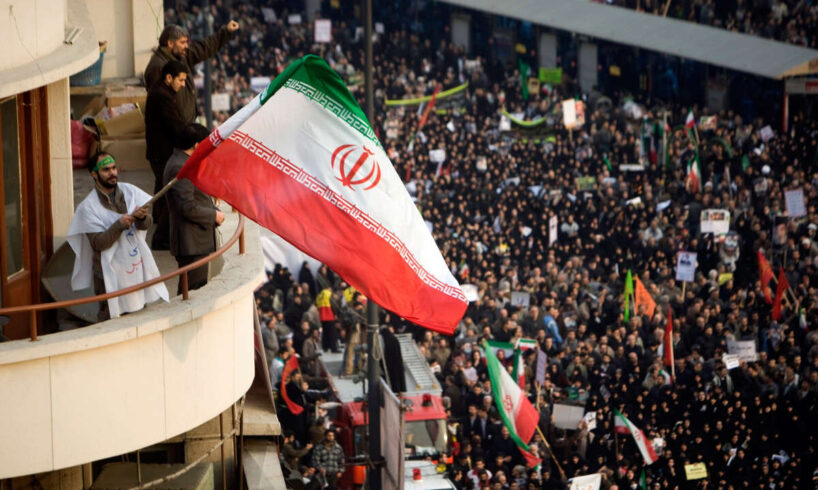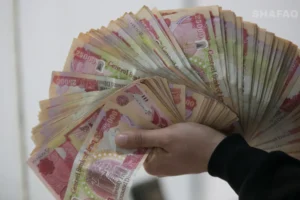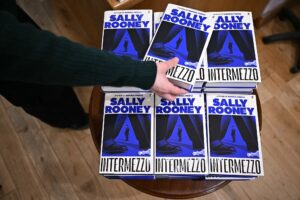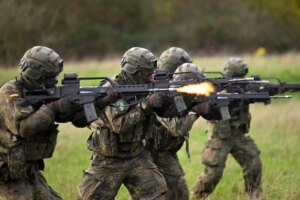
Nearly two months have passed since the outbreak of the war between Iran and Israel. Negotiations for a new nuclear deal are still stagnating, after Iranian insistence led to a deadlock and eventually to the current military confrontation. This week, the European powers (known as the E3) increased the pressure by threatening to reimpose international sanctions against Iran. A senior Iranian official called this step “an existential threat,” and in the current situation, the possibility of another military confrontation in the near future cannot be ruled out.
On Wednesday, the foreign ministers of France, Germany and Britain announced that they were ready to activate the “snapback” mechanism at the end of the month, but left Iran the option to postpone the deadline if it was willing to return to the negotiating table in earnest. “We have made it clear that if Iran is not ready to reach a diplomatic solution before the end of August, or does not take the opportunity for an extension, we will be ready to activate the snapback mechanism,” they wrote in a letter to the UN secretary-general.
Macron, Starmer and Merz. The threat looms constantly over Iran. Photo: Reuters
The ministers added that they had offered Iran a limited extension to allow “direct negotiations between the US and Iran,” but the proposal has so far gone unanswered by Tehran.
The sanctions mechanism
What is this “snapback” being discussed? It is a mechanism built into the 2015 nuclear agreement, which allows its members to reinstate the sanctions imposed by the UN Security Council on Iran between 2006 and 2010. The mechanism is triggered through the Security Council, but its permanent members cannot block it with a veto, effectively leaving Iran exposed, without the diplomatic shield of China or Russia. Since the US withdrew from the agreement, only France, Germany or Britain can trigger it. But the timeline is short: the option to do so expires in October.
If the snapback mechanism is activated, all UN sanctions imposed on Iran between 2006 and 2010 would return. These include a full arms embargo, a total ban on uranium enrichment, a ban on ballistic missile tests capable of carrying nuclear warheads, and a ban on transferring technology and technical assistance in the missile field. In addition, it would impose asset freezes and international travel bans on Iranian officials and entities, and countries would be allowed to search Iranian cargo planes and ships of the national shipping company to find prohibited goods.
Iranian Foreign Minister Abbas Araghchi. Photo: AFP AFP
“An existential threat,” is how a senior Iranian official described the possibility of the powers activating the snapback mechanism. “The Islamic Republic has neither the economic nor military capability to withstand the return of UN sanctions. This will cause the people to protest again, and this time it could be different,” he told the Telegraph from Tehran. “Sanctions are more damaging than war,” another senior Iranian official added. “The Supreme National Security Council has asked the presidency to find a way to talks before it’s too late.”
Indeed, the Islamic Republic is facing a series of complex crises, the most prominent these days is likely the water crisis. On Wednesday, Iranian President Masoud Pezeshkian addressed in a cabinet meeting a jab from Prime Minister Benjamin Netanyahu about the possibility that Israel might help the Iranian people after the regime falls. “That is a delusion. Those who falsely claim to care about the Iranian people should first look at the difficult situation in Gaza and its defenseless people,” Pezeshkian said at the government meeting. “Humanitarian claims from such filthy people are nothing but mockery of the people.”
Thirsty for water
Iranian Parliament Speaker Mohammad-Bagher Ghalibaf found another culprit for his country’s acute problem: Israel. “The Nazis of the 21st century attacked with fighter jets the main water pipes of northern Tehran to drag the city into a water shortage,” he wrote on Twitter. “In the occupied territories and in Gaza, those criminals have been the number one water thieves in the world for years.”
Netanyahu, it should be recalled, addressed the Iranian people in a video message in Persian, promising that Israel would help solve the country’s severe water shortage once Iran was “free” from the current regime.
Masoud Pezeshkian. Photo: AP
Pezeshkian himself gave public expression to Iran’s helplessness on both these issues, water and nuclear talks. In a speech he gave earlier this week, the president admitted: “You want to fight? Well, you fought, but they hit us. If we rebuild the nuclear facilities, they will attack them again. What can we do if we don’t enter negotiations?”
On the water crisis, he said: “We have no water, we have no water under our feet, and we have no water behind our dams. So tell me, what will we do? Someone comes and asks me, ‘What should I do?'” He added that Iran is in a “serious crisis.”
Direct attack on the president: ‘Ignorance’
The editor of the conservative Iranian daily Kayhan, appointed by Supreme Leader Ali Khamenei, called the president’s remarks the result of “ignorance” and added that he hoped Pezeshkian’s words were only a “slip of the tongue.” He wrote, “Some of our officials have fallen into the false trap of ‘either negotiations or war,’ even though America and Israel have been defeated and are now begging for negotiations.”
The Tasnim news agency, affiliated with the Islamic Revolutionary Guard Corps, also attacked the president, claiming: “When the enemy hears these things, what decision does it make and what image does it form of Iran? Clearly, only an image of Iranian weakness.” The agency argued: “To present such a weak and desperate image of ourselves, that we have no way other than talks, will that cause the enemy to negotiate with us and, in addition, give concessions?”
Pezeshkian responded to the criticism on the X social network and defended his approach: “Speaking openly about problems means respecting the awareness of the people, who are the true owners of the country. Solving problems begins with recognition, not concealment. We came to build, not to hide things; we speak honestly with the people, not with sirens.”
There is no doubt that Iran’s nuclear program was severely damaged in the 12-day war, the Iranians themselves, the International Atomic Energy Agency, the US, and regional countries all admit this. But two troubling factors remain: first, the regime’s motivation to advance the nuclear issue has only grown after its conventional deterrence proved to be a broken reed. Second, Iran holds a stockpile of more than 400 kilograms of uranium enriched to 60%, enough for several nuclear warheads after further enrichment, even if that occurs in less sophisticated facilities than the industrial program that was badly damaged.
Benjamin Netanyahu Marc Israel Sellem
Netanyahu confirmed this in an interview with Channel I24, saying of the Iranian nuclear project: “It has been pushed back for years, that I can say. Right now they are not in a position to advance the plans they intended to advance. They have 400 kilograms of enriched uranium left. We knew in advance that the uranium would not be harmed, but that is not enough to produce nuclear bombs.” He added: “We are prepared for the possibility of Iranian action, and above all for an attempt to rebuild their nuclear program.”
A sequence of blows
Danny (Denis) Citrinowicz, former head of the Iran Branch in the IDF Military Intelligence Directorate’s Research Division and now a researcher at the Institute for National Security Studies, estimates that Iran is in strategic distress that could also lead to renewed confrontation. “They are truly in strategic distress. It is a combination of many things: the war, the ongoing confrontation with Israel, and on the other hand also other issues like the water crisis and US involvement in the agreement between Armenia and Azerbaijan. It is a sequence of complex blows for which they have no real solution.”
On the likelihood of another confrontation, Citrinowicz estimates: “There is a high probability they will attack if they assess that Israel is about to attack them, but not in order to ‘punish for the previous round.’ The understanding there is that they cannot repeat the events at the start of the previous war, that is simply too big a danger for the regime.”
As for their current moves, Citrinowicz believes they will work to restore their proxies, despite what appears to be a “death blow” in Lebanon and Iraq, and despite those proving ineffective in deterring Israel. In his assessment, these steps are part of a general Iranian system overhaul, groping in the dark of the strategic quagmire created by the policies of the Revolutionary Guards in recent years.
Lebanese soldiers face Hezbollah supporters during a protest. Photo: AFP AFP
The appointment of Ali Larijani is, in his view, a sign of an attempt to reach out to moderates while at the same time “not tearing the rope” on any front. In terms of force building, the main goal will be to restore their air defense and missile capabilities, which were severely damaged in the war. Before they do that, Citrinowicz estimates, they “will not make strategic decisions on the nuclear issue.”
This situation, according to Citrinowicz, allows pressure on Iran for a series of concessions on nuclear issues, which could complete the process begun in the war, and prevent another confrontation, in the form of a kind of mutual “non-aggression” agreement.
“Entering a war of attrition is very dangerous. We must remember that the Iranians have learned their lessons too, not just us. The question arises, if we have already significantly damaged their nuclear program, what are we trying to achieve now? We see that we too are paying heavy prices from these rounds of fighting.”
Nevertheless, he admits that the decision-making equation is not simple, and that an agreement Iran might reach could reduce pressure on the regime, which is now at a low point. “There is no doubt that the likelihood of returning to war is significant. The starting point of such a war would be the end of the previous war, in other words, we are talking about a war that would begin immediately at a very high level of intensity.”





